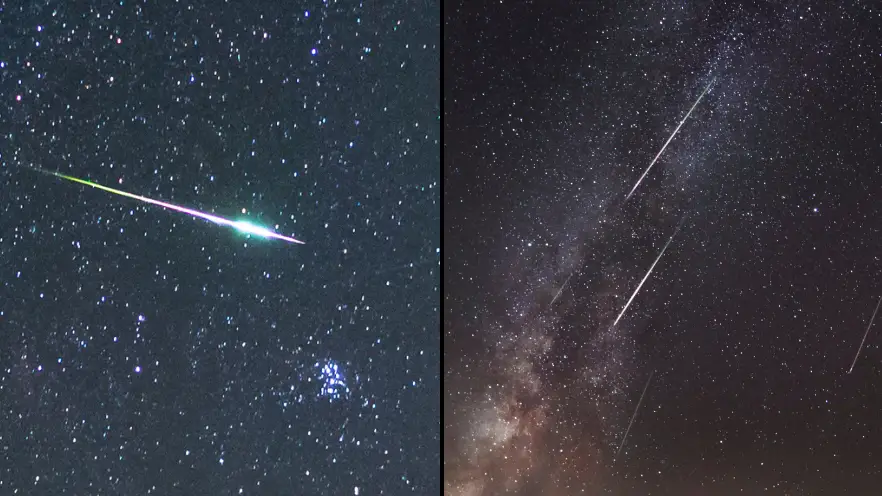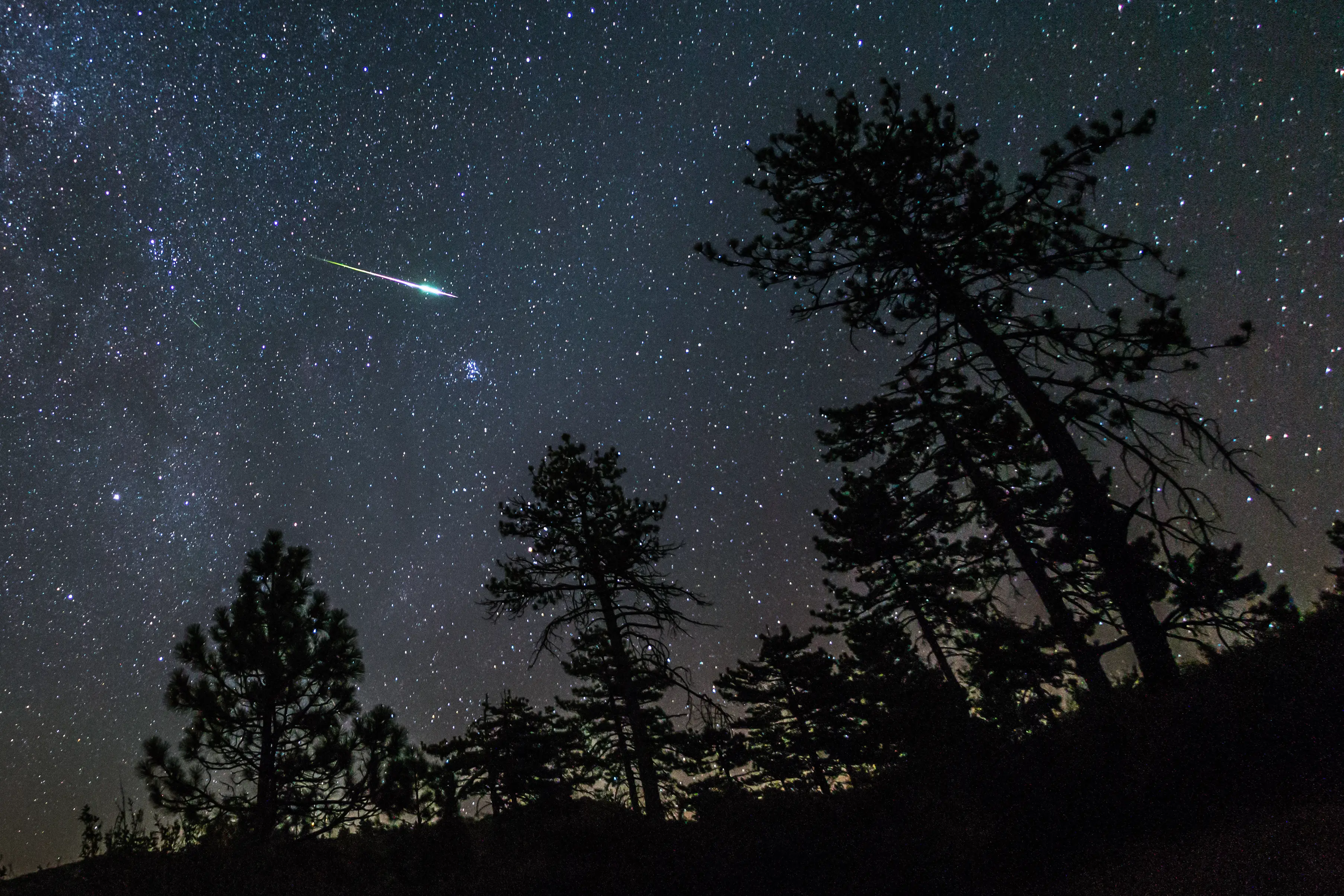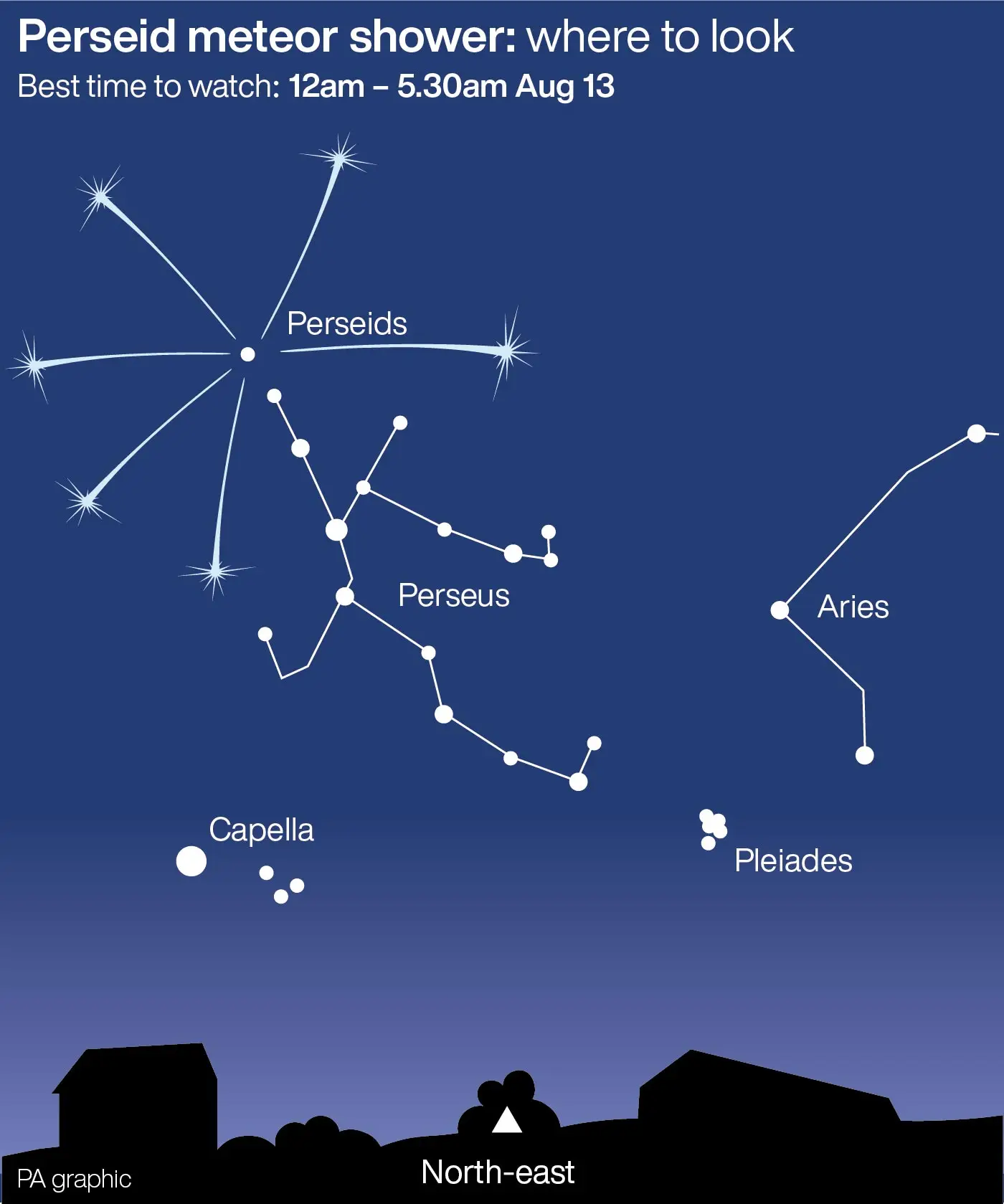
The UK sky is set to light up with up to 100 shooting stars per hour tonight, as one of the year’s most dramatic displays reaches its peak.
The Perseid meteor shower – named after the constellation Perseus, from which the meteors are believed to originate from – is active this year between 17 and 24 August.
It’s known as one of the annual highlights of the stargazing calendar due to its high hourly rate and bright meteors, which are caused by Earth hitting debris left behind by comet 109P/Swift-Tuttle.
For 2023, the shower peaks between 12 and 13 August, meaning tonight’s the night if you want to catch it at its best as up to 100 shooting stars an hour illuminate the sky.
Advert

According to Royal Museums Greenwich (RMG), the best time to see the Perseids – or anything in the night sky, for that matter – is when the sky is at its darkest and when the target is at its highest position.
For meteor showers, this usually occurs between midnight and the very early hours of the morning, with RMG saying the best window for the Perseids is therefore 12am-5.30am.
As for how to see the spectacle, you can technically look out for the shower wherever you are, but there are a number of factors that may increase your chances of spotting the meteors.
RMG said: “Plan ahead and check the weather forecast. If it is likely to be inclement, find a different location or go out on a different day. The days leading up to the peak are usually better than the days after.

“Reduce the amount of light pollution in your field of view. This could mean heading out to the countryside, a nearby park or even do something as simple as turning your back to street lamps if you are not able to go anywhere.
“Give your eyes at least 15 minutes to adjust to the dark so that you can catch more of the fainter meteors – this does mean that you should not look at your phone!
“Meteors can appear in any part of the sky so the more sky you can see the better. Find an area with a clear view of the horizon and away from trees and buildings.”
It added: “Binoculars and telescopes are not necessary as they will restrict the size of the sky that will be visible to you.”
RMG also said that, as this year the maximum – or peak – falls about three years before the New Moon, conditions are ‘favourable’, so set those alarms (or, let’s face it, simply stay up after your night out later) and get your Brian Cox on.